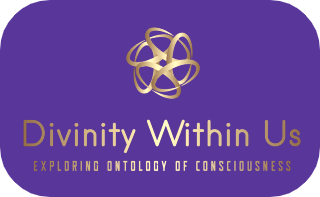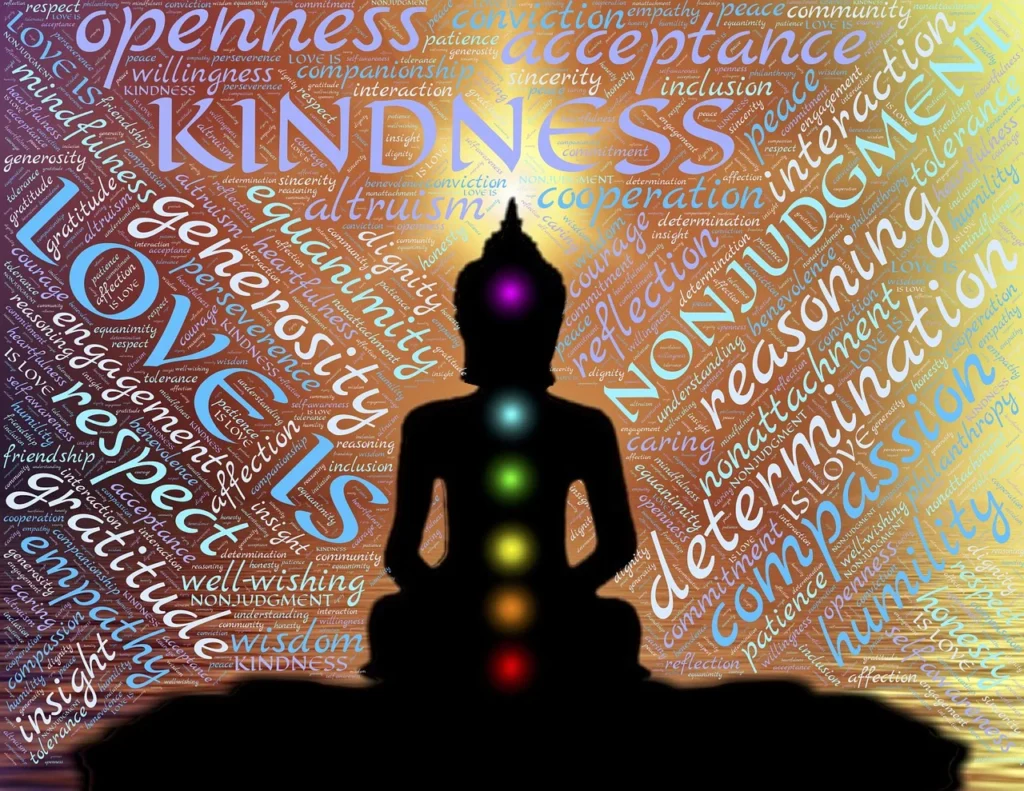Introduction to Taoist Principles
Taoism, an ancient philosophical and religious tradition originating in China, emphasizes a profound harmony with the natural world. Central to Taoist thought are the concepts of ‘wu wei’ and ‘ziran.’ ‘Wu wei,’ often translated as effortless action or non-action, advocates for a way of living that aligns harmoniously with the natural flow of the universe. This principle teaches us to respond to life’s situations without forced effort or struggle, allowing us to navigate our lives smoothly, much like a river flows around obstacles. In embracing ‘wu wei,’ individuals learn to trust in the natural order of things, promoting a state of tranquility and balance.
The second key principle, ‘ziran,’ translates to naturalness or spontaneity. ‘Ziran’ encourages individuals to embrace their authentic selves and to live in a way that reflects their true nature. This means letting go of societal pressures and expectations, thus fostering a sense of freedom and peace. By honoring ‘ziran,’ one learns to appreciate the beauty and simplicity of existence, leading to deeper connections with oneself and the surrounding environment.
Incorporating these Taoist values into modern life can cultivate a more harmonious existence. As contemporary society often prizes constant ambition and control, the teachings of ‘wu wei’ and ‘ziran’ serve as reminders to slow down, observe, and appreciate nature’s wisdom. By aligning with the natural laws that govern our world, individuals can find greater peace and fulfillment. Understanding these principles provides a foundation for exploring practical applications in daily life, ultimately guiding us towards a more serene existence amidst the complexities of the modern age.
Understanding Wu Wei: The Art of Effortless Action
Wu wei, a fundamental concept in Daoism, embodies the principle of effortless action or non-action. This notion does not suggest complete passivity; rather, it promotes a state of engagement with life that allows for natural flow and spontaneity. In contrast to forced actions, which often lead to resistance and struggle, wu wei encourages individuals to align with the rhythms of nature and their true selves. By embracing this art of effortless action, one can cultivate a more fulfilling and harmonious existence.
The essence of wu wei lies in recognizing when to act and when to refrain from action. It advocates for discerning the right moment and means to approach situations with grace and ease. For instance, in daily life, an individual may find themselves stressed while attempting to complete a project. Instead of forcing the process and potentially risking burnout, embracing wu wei might involve stepping back, allowing ideas to incubate, and returning to the task with refreshed perspective and energy. This approach leads not only to a more efficient workflow but also to a heightened sense of creativity and clarity.
Additionally, wu wei encourages individuals to cultivate awareness of their surroundings and to respond to situations mindfully. This might manifest in simple decisions, such as choosing to take a scenic route to work instead of the fastest one, fostering a deeper connection with the environment. Practicing wu wei can also be seen in interpersonal relationships, where one might listen more than they speak, allowing conversations to flow naturally rather than forcing opinions. By integrating wu wei into everyday choices, individuals can nurture a life of authenticity and ease, ultimately enhancing their well-being.
Exploring Ziran: The Essence of Naturalness
Ziran, translated as “naturalness” or “spontaneity,” encapsulates the fundamental essence of being in alignment with the intrinsic rhythms of the universe. This concept is deeply rooted in Daoist philosophy, presenting a thoughtful perspective that emphasizes authenticity and harmony within oneself and with the surrounding environment. Embracing ziran encourages individuals to shed artificial constraints and societal expectations, allowing a genuine expression of one’s true self to emerge.
This state of naturalness signifies a profound connection to nature, reminding us that human beings, like all living entities, are an integral part of the greater ecological tapestry. By acknowledging and honoring this relationship, we cultivate an awareness that fosters respect for the natural world. Through ziran, individuals can find their authentic voice while experiencing a deeper sense of belonging within the universe, leading to a more fulfilling life. Practicing ziran presents an opportunity to strip away distractions and reconnect with one’s innermost desires, fostering personal growth and true happiness.
To incorporate ziran into daily life, consider adopting a perspective that emphasizes simplicity and presence. Engage in activities that promote mindfulness, such as nature walks, meditation, or creative pursuits that allow for spontaneous expression. By creating space for authentic thoughts and feelings to surface, one can facilitate a profound connection to the essence of who they are. Additionally, embracing imperfections and accepting oneself as a continuously evolving being can cultivate a greater sense of peace and self-acceptance.
In essence, ziran encourages individuals to live in accordance with their true nature, finding joy in the unfiltered experiences of life. By embracing this philosophy, we can foster genuine connections with ourselves and the world around us, allowing for a more harmonious existence and a richer understanding of our place within nature.
The Relationship between Humanity and Nature
The dynamic interplay between humanity and the natural world is a theme deeply embedded in various philosophical traditions, particularly in the principles of Wu Wei and Ziran. This relationship is characterized by interdependence, highlighting that human existence is not isolated but rather intricately woven into the fabric of the ecosystem. An understanding of this connection can reveal the consequences that arise when society neglects its alignment with nature. When humans exploit natural resources without regard for ecological balance, the repercussions can be severe, resulting in habitat destruction, climate change, and a degradation of biodiversity.
Living out of sync with nature not only undermines environmental health but also impacts human well-being. Psychological studies have demonstrated that disconnection from nature can lead to increased stress, anxiety, and a diminishment of overall life satisfaction. The modern lifestyle, often defined by constant urbanization and technological advancement, frequently alienates individuals from the natural world. This detachment can foster a sense of incompleteness and unfulfilled potential. Conversely, reconnecting with nature promotes both environmental sustainability and individual fulfillment. Activities such as hiking, gardening, or simply spending time outdoors can serve as reminders of our fundamental ties to the earth.
Philosophically, recognizing the unity between humanity and nature encourages a more harmonious existence. When individuals embrace the concept of Wu Wei, or effortless action, they begin to act in accordance with natural rhythms. This alignment catalyzes a lifestyle that is sustainable and promotes the flourishing of both people and their environments. Adopting Ziran, which refers to the natural state of things, allows for a deeper respect for nature and urges individuals to recognize their role within the broader ecosystem. Such an understanding fosters not only personal growth but also collective responsibility towards the preservation of our planet.
Ways to Achieve Harmony with Nature
In today’s fast-paced world, achieving harmony with nature requires intentional effort and mindfulness. One practical strategy is to cultivate awareness through mindfulness practices. Mindfulness encourages individuals to engage fully with their surroundings, enhancing the connection with the natural world. Simple activities such as nature walks or quiet outdoor meditation can foster a deeper appreciation for the environment and its rhythms. By immersing oneself in the sights, sounds, and smells of nature, individuals can develop a more harmonious relationship with their surroundings.
Another essential aspect is environmental consciousness. This entails understanding how daily actions impact the ecosystem. Individuals can adopt eco-friendly habits, such as reducing waste, recycling, and choosing products with minimal environmental impact. Simple actions, like carrying reusable bags and opting for sustainable materials, contribute significantly to a greener planet. By becoming more aware of consumption patterns and making environmentally responsible choices, individuals promote a sustainable lifestyle that aligns with the principles of harmony with nature.
Additionally, sustainable living is crucial to achieving this balance. This approach encompasses energy conservation, organic gardening, and mindful consumption. For instance, transitioning to renewable energy sources, such as solar or wind power, can significantly reduce carbon footprints. Furthermore, creating gardens that support local biodiversity promotes not only personal well-being but also nurtures the environment. Choosing to purchase from local farmers or participating in community-supported agriculture programs enhances connection to the earth and provides fresh, wholesome food while supporting local economies.
Through these actionable steps and practices, individuals can cultivate a deeper connection with nature. Embracing mindfulness, fostering environmental consciousness, and adopting sustainable living strategies are vital pathways to achieving harmony with the natural world and integrating the principles of Wu Wei and Ziran into everyday life.
Incorporating Taoist Perspectives in Daily Life
Integrating Taoist teachings into daily life can facilitate a profound sense of harmony with nature and self. This alignment is achievable through several practical techniques that encourage mindfulness and presence. One of the primary aspects of Taoism is the cultivation of awareness, which can easily be practiced in everyday activities. By focusing on the present moment, whether during a daily commute or while preparing meals, individuals can enhance their appreciation for life’s simplicity and the natural world’s beauty.
Another vital element of Taoist philosophy is the principle of simplicity. In a fast-paced modern society, it is often easy to become overwhelmed by excessive possessions and commitments. Taoism encourages a decluttered lifestyle, both mentally and physically. Engaging in minimalism can help individuals prioritize what truly matters, allowing for clearer decision-making and promoting a serene environment. This not only reduces stress but also opens avenues for deeper connections with others and with nature.
Moreover, cultivating gratitude is paramount in fostering a Taoist mindset. Daily practices such as journaling thoughts of appreciation can shift focus away from distractions and negativity. Recognizing the abundance present in one’s life fosters joy and satisfaction, aligning with the Taoist view of acknowledging the interdependence of all things.
Practices such as Tai Chi and Qigong can also serve as excellent methods for incorporating Taoist principles into daily life. These forms of movement emphasize flowing with natural energy, enhancing bodily awareness, and emotional regulation. This can lead to improved relationships and personal development, as they cultivate not only physical health but also mental clarity and emotional balance.
Understanding Duality: Beyond Heaven and Earth
In the context of Taoism, the concept of duality is a fundamental aspect of reality, illustrating the inherent balance between opposites. This ancient philosophy posits that every element within the universe is interconnected, where contrasting forces such as light and dark, male and female, and expansion and contraction coexist and complement each other. According to Taoist beliefs, understanding these dualities is essential for achieving harmony within oneself and with the environment.
Duality can be viewed as the yin and yang dynamic, which symbolizes the interdependence of opposing forces. Yin represents qualities such as passivity, receptivity, and darkness, while yang embodies activity, assertiveness, and light. The interplay between these two forces forms the basis of natural phenomena, suggesting that neither can exist without the other. As individuals come to acknowledge the significance of this balance, they begin to transcend binary thinking, leading to a deeper understanding of existence.
Furthermore, Taoism encourages practitioners to recognize that many of life’s complexities arise from the interplay of dualities. For instance, joy cannot be fully appreciated without the contrast of sorrow, and strength often stems from vulnerability. By embracing and understanding these polarities, one can cultivate a more nuanced perspective on life, fostering resilience and adaptability. Such awareness enables individuals to navigate life’s challenges with grace, allowing them to harmonize their inner and outer worlds.
Ultimately, the journey towards transcending duality is a pathway to achieving unity with nature and the cosmos. This alignment with the principles of wu wei (effortless action) and ziran (naturalness) enhances one’s ability to live harmoniously, promoting a deeper appreciation for life’s intricate and interconnected dynamics. As one moves beyond the dichotomy of heaven and earth, the realization of an all-encompassing existence leads to profound insights into the nature of being.
Living Consciously: Connecting with Primordial Awareness
In today’s fast-paced world, it is increasingly vital to foster a deeper connection with our surroundings. This connection begins with an understanding of primordial awareness, a state of consciousness that precedes our everyday experiences. By tapping into this awareness, individuals can rejuvenate their sense of peace and attain a harmonious existence with nature. Meditation serves as a fundamental practice to access this state, allowing individuals to quiet the mental chatter and cultivate a profound sense of connection. Various forms of meditation—such as mindfulness, transcendental meditation, and guided imagery—offer pathways for this exploration.
Mindfulness meditation, which emphasizes the awareness of the present moment, can serve as a powerful tool for recognizing the underlying flow of life. Practitioners learn to observe their thoughts and sensations without judgement, effectively tuning into the natural rhythms of their body and environment. As one develops this practice, the potential to align with primordial awareness heightens, leading to a more profound understanding of the world.
Another effective method is spending time in nature, engaging with landscapes or natural elements. This engagement allows individuals to experience the interconnectedness of life, encouraging a deeper appreciation for the earth’s ecosystems. Activities like hiking, gardening, or even simple outdoor walks can facilitate this connection. Furthermore, incorporating breathwork into daily routines enables individuals to center themselves, fostering a deeper awareness of their physical presence and surroundings.
Ultimately, cultivating a conscious connection with primordial awareness encourages a more harmonious lifestyle. This awareness not only enhances one’s inner peace but also fortifies a respectful relationship with nature. The integration of these practices into daily life invites serenity and a profound sense of belonging within the universe, essential for achieving a balanced coexistence with our environment.
Conclusion: Embracing a Harmonious Existence
Living in harmony with nature is essential to achieving a balanced and fulfilling life. The principles of wu wei, often translated as “non-action” or “effortless action,” encourage individuals to align their actions with the natural flow of the universe. By practicing wu wei, we learn to cultivate a sense of ease and spontaneity, ultimately leading us to make decisions that are in sync with our environment rather than against it.
Additionally, the concept of ziran, or “naturalness,” further deepens our understanding of how to engage with the world around us. Embracing ziran means recognizing our intrinsic connection to nature and allowing ourselves to be guided by its rhythms and cycles. This understanding fosters a sense of respect for all living beings and encourages us to adopt sustainable practices that support the health of our ecosystems.
Throughout this exploration, we have discussed various ways to incorporate these ancient teachings into our daily lives. From mindfulness practices and conscious consumption to fostering deeper connections with the natural world, each action contributes to a more harmonious existence. By embracing the principles of wu wei and ziran, we cultivate inner peace and resilience, which in turn enhances our well-being and that of the planet.
As we reflect on the importance of living in concert with nature, we encourage you to consider how you might integrate these teachings into your daily routine. Whether it is through mindful observation, practicing gratitude for the natural world, or seeking ways to minimize your ecological footprint, every small step counts. Strive to be present, embrace your natural self, and let your actions flow effortlessly with the harmonious rhythms of life. By doing so, we not only enrich our own lives but also contribute positively to the world we share.






